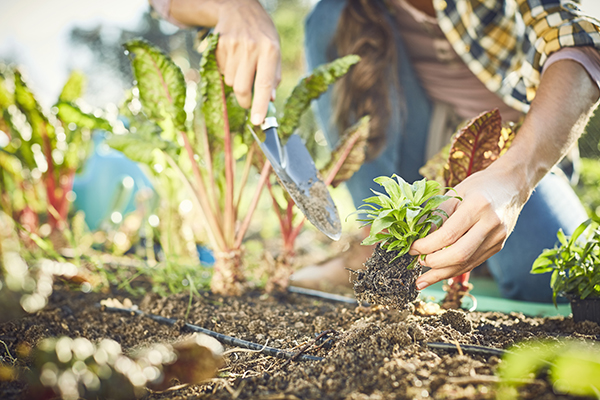
The community garden project will help individual student communities
to begin and maintain their own vegetable gardens to address food insecurity
within their own environment.
Photo: Pixabay
Get ready for celebrating with a cause at the University of the Free State (UFS). After an external review and internal consultation process, our “giving back” will get a fresh new look. Our RAG, as you know it, will have a new name and format going forward.
Innovative thinking will align the UFS Student Affairs, RAG Community Services (RCS), Community Engagement (CE), and Services Learning (SL) to deliver suitable contributions for current community needs. We will guide the alignment process with an integrated framework for learning and developmental outcomes. If the RCS, CE, SL, and Student Affairs align their specific programmes and activities to achieve the same developmental outcomes, we believe that the collective effect will be enhanced. You get further if you pull in the same direction, rather than various good-intentioned movements on different routes.
Stronger together An Institutional Committee for Civic and Social Responsibility (CSR) will act as the overarching structure for accountability, alignment, and advice to the RCS, CE and SL divisions. In a collective effort, four exciting programmes will take flight.
1 Schools project for first-year students Mentored by senior students, groups of first-year students will be assigned to, and participate in local school projects. Students will learn to solve problems and work together in small groups as they collaborate on a specific community project involving primary or secondary schools in the Mangaung region.
2 Community gardens This project will help individual student communities to begin and maintain their own vegetable gardens to address food insecurity within their own environment.
3 Eco-vehicle project for senior students The aim of the eco-vehicle project is to create an interdisciplinary experience. Undergraduate senior students from a Student Life College (SLC) can work together to build an eco-vehicle from waste material. The track day, along with creative pit stops, will take place on 16 February 2018, preceding the Community celebration of 17 February 2018.
4 Community celebration To foster good relationships between the UFS and the community, we aim to host an annual celebration that will be open to the broader Mangaung community. The celebrations will kick off on the morning of 17 February 2018 with a business relay and a showcase of the eco-vehicles. The festive day will conclude with an evening music concert.
We have yet to rename “RAG”, and while this creative process is brewing, you can look forward to paying it forward with value! Any suggestions with regard to a new name for our new process can be forwarded to scheepersk@ufs.ac.za
Name suggestions will be accepted until 30 November 2017.